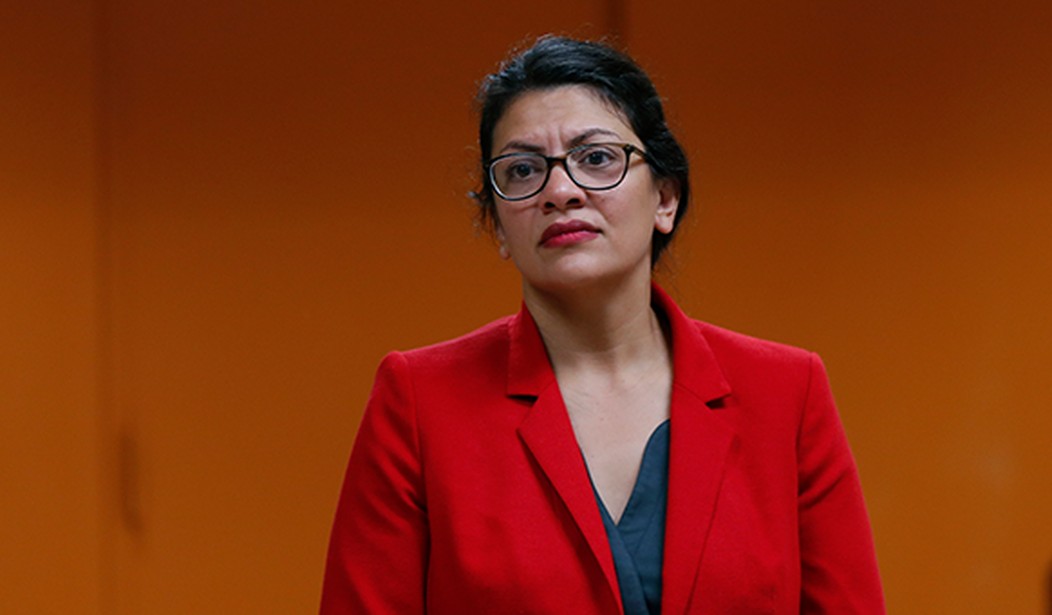Being privy to the legislative process, I was appalled by the dismissive attitude Rep. Rashida Tlaib (D-MI) showed recently to a witness testifying on so-called “vaping-related” hospitalizations.
Vicki McKenna, a beloved radio talk show host from Wisconsin, testified in front of the House Oversight and Reform Subcommittee on Economic and Consumer Policy in mid-September, attesting that electronic cigarettes helped her “quit smoking after 23 years.” Tlaib, who hails from Michigan, displayed conceit and disdain during the testimony. Her attack wasn’t directed at any “tobacco lobbyist,” either, but toward a constituent from another midwestern state. And to make matters worse, Tlaib’s interrogations were based on blatant misinformation.
Tlaib first inquired into McKenna’s self-identified political beliefs, including a “converted conservative” and a “reformed Marxist,” before asking whether McKenna was a “conspiracy theorist.” McKenna responded accurately that her political beliefs should not discount the idea of e-cigarette harm reduction.
Tlaib’s display of arrogance quickly devolved into apparent ignorance as the congresswoman could not understand that vaping is indeed not smoking. There’s a reason traditional cigarettes are called “combustible cigarettes,” and in case Rep. Tlaib needs a basic, fifth grade level science refresher: for something to be smoking, it must be combusted. In other words, “where there’s smoke, there is fire.” E-cigarettes and vaping devices do not light e-liquid on fire; they heat them, which creates a vapor—not smoke. More importantly, they have also helped an estimated 3 million Americans quit smoking combustible cigarettes.
Recommended
I would like to inform Tlaib personally that the only “conspiracy theory” surrounding the use of tobacco products in America is that every form of government, from local to state to federal entities, relies on the lungs of smokers for revenue. But Tlaib should already know all about this.
Tlaib, after all, got her political career started in the early 2000s in Lansing, Michigan, when she was hired by then-State Rep. Steve Tobocman. She was then elected in 2008 to the same chamber. During her time at the capitol, Tlaib would have learned exactly how states have used smokers to meet their debt obligations.
Michigan first sued tobacco manufacturers in 1996, seeking “$14 billion in damages for medical costs incurred under the Medicaid program due to tobacco-related diseases.” In 1998, the state reached an agreement with the tobacco companies, concluding with the 1998 Master Settlement Agreement (MSA). From 1998 to 2019, Michigan has received more than $5.7 billion in MSA payments.
Instead of spending MSA money on health care programs, the Michigan Legislature agreed in 2005 to securitize their tobacco moneys in the form of a capital appreciation bond so the Wolverine State could receive up-front cash by selling future MSA payments to bondholders.
In 2005, Tobocman voted in favor of securitizing $400 million in tobacco settlement moneys “to fund the starting balance of the 21st Century jobs Fund.” In 2007, Tobocman again voted in favor of securitizing another $415 million “to help balance the FY 2006-07 state budget.” In 2008, acting as Majority Floor Leader, Tobocman discharged from committee a bill that would have used already securitized tobacco moneys for “tourism and business promotion.”
The issue with state securitization of tobacco bonds is that MSA payments are based on cigarette sales. So, essentially, Tlaib’s home state is relying on the lungs of smokers to meet future debt obligations. Even more alarming is that Michigan uses very little MSA money and tobacco taxes to help smokers quit. In 2019, the Great Lakes State received $1.2 billion in MSA payments and tobacco taxes and dedicated only $1.6 million, or 0.001 percent, on tobacco-use prevention programs.
Michigan is not alone in bonding out MSA payments. California, New Jersey, and New York all have sold out billions of future tobacco moneys. Coincidentally, like Michigan, New York’s governor has also banned flavored e-cigarettes. California started the trend with localities issuing similar bans. San Francisco, a city that receives its own individual MSA payments from the state, banned the sale of all e-cigarette products earlier this year. One must wonder if this recent assault on e-cigarettes is about health or about keeping tobacco funds flowing into state coffers.
An unprovoked verbal assault by a federal legislator on a 51-year-old woman who simply wanted to share her journey of quitting smoking is appalling. Even more appalling, Tlaib worked to redirect future tobacco moneys to anything other than tobacco harm reduction. Even worse, she’s now working to remove a tobacco harm reduction tool from smokers in her home state—the same residents Michigan relies on to meet debt obligations.

























Join the conversation as a VIP Member